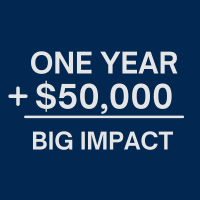Mental Health Research Mentored Early Career Development Award
Call for Applications
The Behavioral Health Center of Excellence (BHCOE) is pleased to announce a call for applications for the Mental Health Research Mentored Early Career Development Award. The goal of the program is to train junior faculty (at the Assistant Professor level) as investigators in patient-oriented mental health research. The period of support will be $50,000 for 1 year.
The program aims to accelerate the career development of promising junior faculty, promoting their development as independent clinical research investigators. Selected scholars will receive formal mentored training in mental health research for a period of 1 year.
Scholars will conduct a rigorous clinical/patient-oriented research investigation relevant to their research interests. Scholars will be mentored by senior investigators from diverse backgrounds with a demonstrated track record of successfully developing the careers of junior colleagues and the resources needed to ensure completion of the proposed research project.

DEADLINE: Friday, April 1, 2022
Join us in supporting the pipeline of promising mental health researchers.
Please pass it along to your department colleagues!
ELIGIBILITY REQUIREMENTS
- Junior faculty, either currently appointed or new recruits, with clinical professional degrees (MD; PhD with clinical focus). Physician Scholars must have completed residency training and are board-eligible. Exceptionally promising applicants early in their academic careers are particularly encouraged to apply.
- Demonstrate a high level of interest and a long-term plan to pursue a career in academic mental health research.
- Scholars may not be a Principal Investigator on an R01, R29, or subproject of a Program Project (P01), Center (P50, P60, U54) grant, mentored career development (K-series) grants, or other equivalent research grant awards.
EVALUATION CRITERIA
- Preparation of the applicant for success as a clinical/translational researcher (weight 25%)
- Quality of the research plan, including importance, innovation, methodological rigor, and feasibility (weight 50%)
- Career and mentoring plan (weight 25%)
Reviewers assign a numerical value to each of the above categories for each application, and an overall score is determined. Reviewers also provide a supplemental written evaluation identifying major overall strengths and limitations of each application.
PROGRESS OF SCHOLARS
Scholars and their mentors will meet on a regular basis, agree on productivity goals, and discuss the scholar’s progress. This will be a proactive process designed to identify and overcome any barriers to success, facilitate access to resources, and promote accelerated career development through networking. Scholars will also present their work in progress and will work with the Director of the BHCOE to help advance the BHCOE mission by serving on committees. In addition, scholars will be asked to provide advice and feedback regarding the success of this program and methods for improving it. Documentation from both scholars and their mentors will be submitted at regular intervals.
APPLICATION
Candidates must submit a written application electronically in a single PDF file. Unless otherwise specified, the application should conform to the standard NIH organizational structure and NIH guidelines with respect to the details of formatting (e.g. font size, margins) and include the following components:
- Application cover sheet (see attached)
- Research proposal (3 pages)
- Specific Aims (1 page)
- Background and Significance (1 page)
- Innovation and Approach (1 page)
- References
- Human Subjects Considerations in the planned research using the standard NIH format (Section E). This is to include a planned enrollment table.
- Career Plan (1 page)
The response should address each of the following prompts. Please ensure that the Career Plan has a clear mental health focus.- What are your long and short term career goals and aspirations?
- What do you envision yourself doing in 5-10 years?
- What resources will you require in order to achieve this vision?
- Education/training resources
LETTERS OF SUPPORT
- Mentors: A letter of support from the candidate’s proposed mentor will be of great importance to the reviewers. Considerable attention should be paid to the requirements for the mentor's letter:
- The candidate will need to identify a mentor who will contribute to the applicant’s program of research and training. The mentor's letter must make clear how the disciplinary expertise of the mentor will contribute to the candidate’s research and training plans. It should describe how the mentor will contribute to the candidate’s research and training.
- The mentor's letter must provide evidence of familiarity with the candidate’s research and educational/training program. Ideally, the mentor will guide the candidate in the development of the research proposal to be submitted as part of this application. The mentor's letter should describe their degree of involvement in the preparation of the application.
- The mentor's letter should also describe specific plans for the frequency of contact between the mentor and the applicant and identify expectations for candidate productivity (i.e. expectations regarding manuscripts, submission of applications for extramural funding, etc.). They should indicate a willingness to complete the required documentation of mentee progress and participate in seminars.
- Finally, the mentor should describe their experience with mentoring and provide a table identifying their prior mentees, their current positions, and any evidence of their mentees’ research productivity.
- Department Chair: The letter should address the chair’s opinion regarding the applicant’s qualifications for a career as an independent clinical research scientist and should discuss how the applicant’s work will contribute to, and is consistent with, the goals of the department.
CHECKLIST OF MATERIALS TO BE SUBMITTED
Candidates must submit an electronic application in a single PDF with the following documents:
- Application Cover Sheet
- Research proposal
- Human Subjects section and planned enrollment table
- Career plans
- Letters of support
IMPORTANT DATES
- Friday, April 1, 2022: Deadline to submit application materials, 5:00 PM Pacific Time
- Tuesday, May 31, 2022: Final decisions will be released to all grantees
- Monday, June 13, 2022: Grant period begins
For more information about the BHCOE's Mental Health Research Mentored Early Career Development Program, please contact Dr. Cameron Carter at cscarter@ucdavis.edu.

